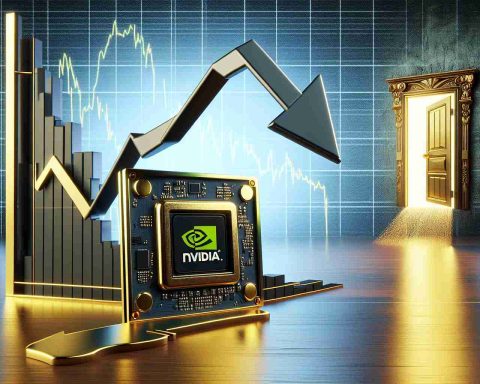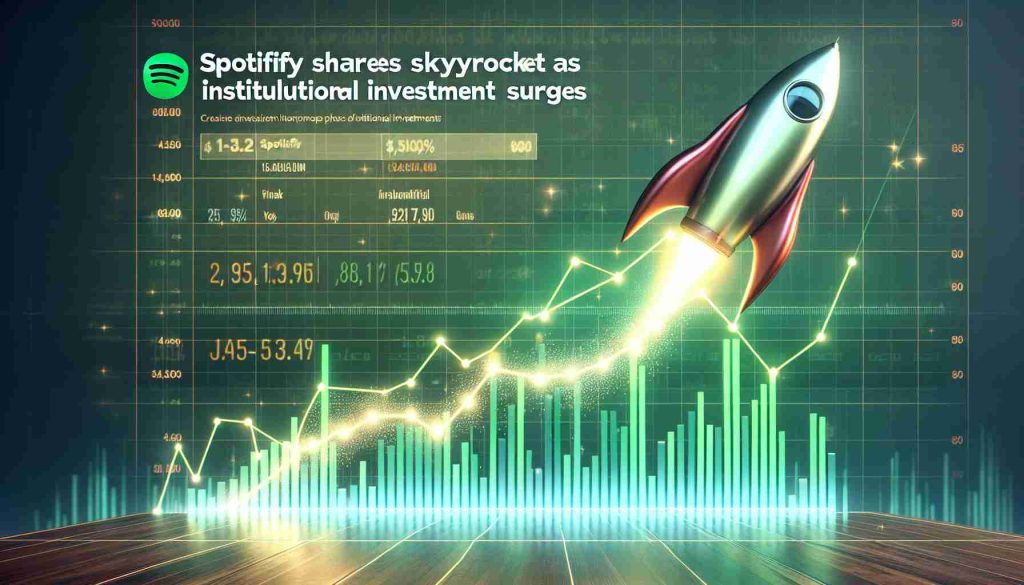As the tech landscape evolves, Nvidia continues to dominate the artificial intelligence (AI) sector, becoming an essential investment through 2023 and 2024. With 2025 on the horizon, investors are eager to know if Nvidia will maintain its lead in the AI race.
Nvidia’s prowess lies in its cutting-edge graphics processing units (GPUs). Renowned for their ability to handle multiple calculations simultaneously, these GPUs are fundamental to the functionality of complex AI models. As companies across the globe strive to enhance their AI capabilities, demand for Nvidia’s products is expected to soar. For instance, Meta Platforms’ upcoming AI model, Llama 4, will demand significantly more computing power than its predecessors, reflecting a broader industry trend.
Acknowledging the growing importance of AI, major tech players, including Meta, are planning to boost their investments in AI infrastructure. This surge in capital expenditure bodes well for Nvidia, ensuring robust demand for its GPUs as we approach 2025.
However, Nvidia’s meteoric rise has made its stock pricing steep, becoming the highest in its history. With analysts predicting a 49% revenue growth for FY 2026, opinion is divided on whether this growth will justify the high valuation. Some believe AI development will sustain Nvidia’s demand, while others speculate it may decline post-2025.
Ultimately, Nvidia’s future could unfold in various ways. Whether 2025 will herald continued growth or plateau is uncertain. But many analysts predict that Nvidia will still outperform in the market, even if it doesn’t rank as the top stock purely by price appreciation.
Unveiling the Ripple Effects of Nvidia’s AI Dominance: Winners, Losers, and Unexpected Controversies
Introduction
As Nvidia continues its reign in the artificial intelligence sector, the ripple effects extend far beyond tech corridors and investor meetings, transforming lives, communities, and even influencing geopolitical landscapes. This article delves into how Nvidia’s dominance in AI technology impacts different stakeholders, explores intriguing controversies, and scrutinizes the potential advantages and disadvantages of this tech giant’s burgeoning influence.
Impact on Communities and Countries
Nvidia’s AI advancements have profound implications on communities worldwide. For instance, in developing countries, increased access to AI technology—facilitated by more affordable and powerful GPUs—can revolutionize sectors like healthcare, education, and agriculture. AI-driven analytics and decision-making could bridge infrastructure gaps, provide personalized learning plans, and optimize crop yields, which could drive significant socio-economic development.
Conversely, this tech advancement may also widen the technological divide. Countries with limited access to Nvidia’s AI hardware and expertise may fall further behind. Notably, regions lacking critical internet infrastructure might not benefit from AI advancements, exacerbating existing inequalities.
Fascinating Facts and Controversies
One intriguing fact is that Nvidia’s GPUs have become so essential that they are integrated into supercomputing projects aiming to solve climate change challenges. These GPUs are adept at crunching complex climate models, providing insights that traditional computing solutions cannot match.
However, a controversial aspect of this AI boom is its environmental impact. The enormous energy consumption required by data centers housing thousands of Nvidia GPUs raises questions about sustainability. Despite Nvidia’s efficiency improvements, critics argue that the industry’s carbon footprint continues to grow, demanding innovative solutions to offset this environmental cost.
Advantages and Disadvantages
The advancement of Nvidia’s AI technology presents numerous advantages:
– Innovation Catalyst: Nvidia’s GPUs spur AI innovation across industries, making complex computations feasible and driving advancements in autonomous vehicles, healthcare diagnostics, and personalized marketing.
– Economic Growth: The company’s success promotes job creation in tech industries, fostering economic development in regions with significant Nvidia facilities.
On the other side of the coin:
– Market Monopolization: Nvidia’s dominance could stifle competition, potentially leading to higher costs for businesses reliant on their GPUs and reducing innovation from smaller competitors.
– Security Risks: With AI becoming more integral, the stakes for cybersecurity rise. Reliance on Nvidia’s technology makes systems worldwide susceptible to single points of failure.
Questions and Answers
Will Nvidia’s AI dominance impact global job markets?
Yes, Nvidia’s technology could reshape job markets globally. While automation and AI-driven processes can replace certain roles, especially in manufacturing and data processing, they also generate demand for tech-savvy professionals skilled in AI development, maintenance, and ethical oversight.
Can other companies realistically challenge Nvidia’s stronghold in the AI sector?
While companies like AMD and Intel aim to offer competitive products, Nvidia’s head start in AI GPUs gives them a significant advantage. Nevertheless, emerging technologies and strategic partnerships could erode Nvidia’s lead over time.
Conclusion
Nvidia’s impact transcends simple market dynamics, embedding itself into the fabric of society and global progress. As its technologies permeate deeper into daily life, evaluating and balancing the benefits against the potential drawbacks remains crucial. Understanding these multifaceted consequences aids individuals and policymakers alike in making informed decisions.
For more insights into AI advancements, visit Nvidia’s official website.




















